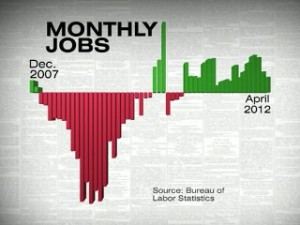5’ 6”, shaped like a pear and possessing a bad comb-over; Mr. Lafferty was my father’s bookkeeper; and he and his adding machine fascinated me. His fingers would fly over the keys; after every entry, he would pull the manual handle, advancing the paper roll and begin the process again. He was a machine, not stopping until an entire column had been entered; then he would pull the adding machine tape close—he never tore the tape, he saved, reversed, re-rolled and used it again—check his numbers and start again. After at first refusing to do so, he would relent to my begging and let me tug the adding machine crank.
After graduating from college, I went to work for my father. I had been on the job a few days when the general manager asked me to check an estimate. I began to check his math: multiplying, adding and totaling columns by hand. He laughed at my efforts and asked why I didn’t use the comptometer. At first, I had no idea what it was, but I soon learned how to operate the weird machine.
The size of an IBM Selectric typewriter—another ancient and rare piece of office equipment—our comptometer weighed about as much as a Volkswagen Beetle. Using the apparatus to multiply or divide, the internal mechanisms would clank and bang for what seemed to be an eternity before miraculously the results would appear. I thought the gadget to be a miracle of technology until we purchased our first electronic calculator.
Similar in appearance to a telephone, our first calculator had no printer and a surge of electricity from a distant storm would destroy the display. When it first arrived, I would enter a calculation and then check the answer by hand. For a mathematically challenged history major, the instantaneous calculation of a square root was a miracle. I was satisfied with the calculator and its successors until I discovered computers.
Drinking a beer with a guy I had played in a racquetball tournament, I asked what he did for a living. He responded, “I run a company that develops and sell small business accounting software.”
“Small business software: you had to be kidding! To run software, you have to own a computer and our company can’t afford a computer!”
Soon afterward he sold us our first computer.
The day they delivered our brand new TRS 80—Tandy Radio Shack—computer, I was as excited as if the governor had stopped by. We had purchased the top of the line: 64k of memory, a 13” black and white monitor and an expansion bay, with three 5 1/4” floppy drives. A machine so cutting edge that an industry trade magazine detailed a reporter to take pictures and gather information for a feature story. Our accounting was automated and with the advent of the first spreadsheet program, so was our estimating. I thought technology had peaked.
Now I own an Ipad. The size of a small notepad, it is a personal entertainment and business center. I can download and read books while listening to my favorite music; I am able to play a game, check email, write a letter or surf the Internet. Not requiring wires, external power or speakers: a miraculous advance in technology.
As I download applications to my Ipad, I sometimes think about Mr. Laferty: the advances in technology and how those advance have changed our lives.
25 years ago, if today’s technology had been available I might still be in the construction business. What were once onerous tasks, such as producing shop drawings, now take only minutes. Communications with customers, employees and vendors would be seamless and immediate; in many ways business is easier now: but, are things really better? Perhaps and perhaps not.
Always in touch, there’s a tendency towards making precipitous rather than well-considered decisions? The urgency of instant connectivity can result in reduced productivity, mistakes and damaged relationships. Technology also affects personal relationships.
Tablet computers, smart phones, video games allow for self-sufficient entertainment: we don’t need others to distract us from boredom. Yet, social interaction and boredom are important to our well-being: if our minds are always occupied, there is little time for creativity and the lack of interaction can lead to an acceptance of isolation from others.
It’s been an amazing journey with technology: from watching a comptometer chugging away to sitting on my back porch surfing the web. Technology begets technology; so, advancements are going to continue; I cannot imagine what tomorrow will bring. I do know that we must not become so enslaved to tools that we lose touch with each other.
Quote
“As industrial technology advances and enlarges, and in the process assumes greater social, economic, and political force, it carries people away from where they belong by history, culture, deeds, association and affection.” – Wendell Berry
 “Business would be easy if you didn’t have to deal with customers and employees.” A tired but true saying my father often muttered after coping with an unhappy customer.
“Business would be easy if you didn’t have to deal with customers and employees.” A tired but true saying my father often muttered after coping with an unhappy customer.

